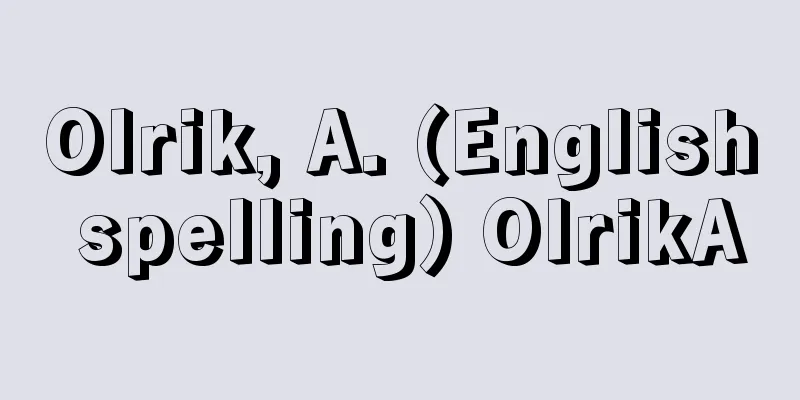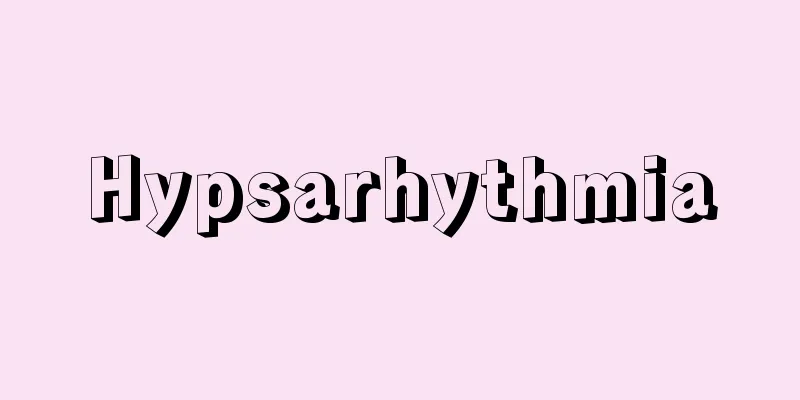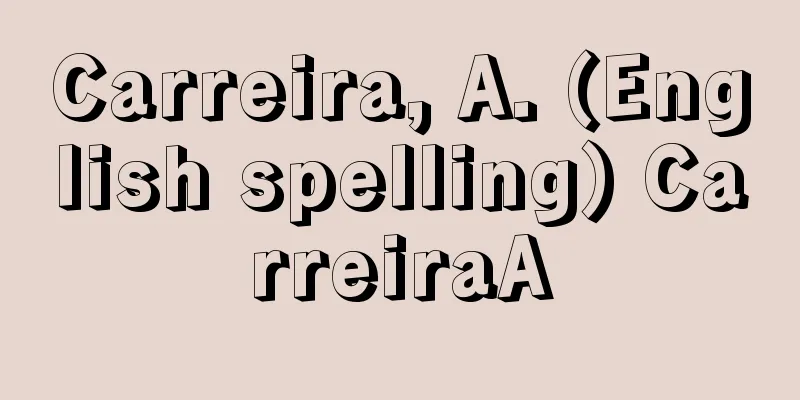Albert Camus

|
French writer and thinker. Born on November 7th at the farm of Saint-Paul in the former Constantine department of Algeria, which was a French colony at the time. His father, Lucien Auguste Camus (1885-1914), was a farm worker, and his mother, Catherine Hélène Sintes (1882-1960), a Spanish woman who was deaf and illiterate. In September 1914, his father was killed in the Battle of the Marne, and Albert and his brother, Lucien Jean Etienne Camus (1910-?), were taken in by their mother's family in the Bellecourt district, a working-class neighborhood in Algiers. His mother worked as a housekeeper and helped support the family, raising two children. Albert spent his childhood in the harsh and difficult life and the intense and beautiful nature of North Africa, but in 1918 he entered a public elementary school and met his teacher, Louis Germain. This teacher persuaded Albert's family, who had no interest in education, to take the scholarship exam and enter a lycée. In 1930, the young philosopher and writer Jean Grenier, who was assigned to the philosophy class at the lycée, recognized Albert's talent, and after reading André de Richaud's (1909-1968) "The Agony" and Grenier's own "The Deserted Island," Albert began to turn his attention to literature. The love between teacher and student between the two deepened when Albert entered the Faculty of Letters at the University of Algiers, and continued throughout his life. However, Albert's youth was darkened by his severe tuberculosis in 1930, when he coughed up a lot of blood and was pronounced dead by his doctor, and by the end of his first marriage in 1934 when his wife ran away. Despite his ill health, he worked various part-time jobs and graduated from the University of Algiers in 1936 with a thesis entitled "Christian Metaphysics and Neoplatonism". He also performed in theatre at the Labour and Nakama theatres, joined the Communist Party for a time, and participated in politics in his own way, such as through his activities with the "Culture House" during the Popular Front period. After 1938, he cooperated with Pascal Pia (1903-1979), supported the Popular Front government as a journalist for the newspapers "Alger République" and "Soir République", and exposed the injustices of colonialism. As for his literary activities, he published his first work, an autobiographical essay called "The Inside and the Outside" in 1936, and a lyric essay called "Marriage" in 1939 in a small number of copies in Algiers. He also wrote a novel called "A Happy Death", which was a failure. In 1940, Camus was expelled from Algeria for his anti-government activities, and through a peer's introduction, he got a job at the newspaper Paris Soir and returned to France. After that, he wrote the novel The Stranger and the philosophical essay The Myth of Sisyphus, during the turbulent period following the defeat of France against Germany and the subsequent occupation, while moving around Paris and other places. In this way, he gave a youthful expression to the philosophy of "absurdity," which holds that life has no meaning in itself, but that it is precisely because it has no meaning that it is worth living. From around 1943, he also participated in the Resistance movement as editor-in-chief of the illegal newspaper Combat. Then, in August 1944, when Paris was liberated from German occupation, Camus, the author of The Stranger and the young editor-in-chief of the brilliant Resistance newspaper Combat, rose to the height of his glory as a hero of the young intellect of the post-war generation, embodying "the wonderful encounter between man, action, and work" (Sartre), in stark contrast to his time in Algiers. His two plays, Caligula (1944) and Les Misunderstandings (1944), were well received, and in 1945 he had twin children, Jean Camus (1945- ) and Catherine Camus (1945- ), with his second wife, Francine Camus (1914-1979). However, Camus's postwar glory, in which he was praised on a par with Sartre, did not last long. In 1944, after arguing with Franco-Mauriac over the propriety of the purge of collaborationists with Germany, he soon began to doubt his own judgment in somewhat rashly approving the elimination of those who belonged to the old regime, and he became seriously skeptical of himself when it came to the issue of violence in politics. During the postwar "Cold War era," Camus preached the denial of all political violence in the issues of colonies such as Indochina and Algeria, and the issue of the French political system, and so he fell from being a child of the times to being a child of the devil. Already in 1946, he resigned as editor-in-chief of the newspaper Combat, and expressed a new political morality of the denial of violence in his essay "No Victims, No Executioners," and in the following year, in 1947, in his novel "The Plague," and in his play "The Just Men." The book "The Rebellious Man" (1951), which argued that rebellion, not revolution, could bring about concrete change in society, was the culmination of Camus's thought during this period. However, his famous debate with Sartre over this book (1952) resulted in his definitive isolation in the French intellectual world, which was heavily influenced by Marxism. Furthermore, the Algerian war that began in 1954 only accentuated Camus's sense of political powerlessness after several futile attempts at intervention. The loneliness of this period is vividly reflected in his novels "The Fall" (1956) and "Exile and the Kingdom" (1957). In October 1957, he received the Nobel Prize in Literature for his achievement of "shining a light, with sharp sincerity, on the problems that today pose to human consciousness," but the news was received coldly in France. However, when news broke on January 4, 1960, of his sudden death in a traffic accident near Paris, there were many voices lamenting the untimely passing of this "honest" author. [Yoshinari Nishinaga, May 19, 2015] "The Complete Works of Camus, translated by Shimizu Toru et al., 10 volumes (1972, 1973, Shinchosha)" ▽ "Albert Camus: A Critical Biography, by Nishinaga Yoshinari (1976, Hakusuisha)" ▽ "Albert Camus: His Light and Shadow, by Shirai Koji (1977, Kodansha)" ▽ "Albert Camus: A Biography, by H.R. Rotman, translated by Okubo Toshihiko et al. (1982, Shimizu Kobundo)" [References] | | | | |Source: Shogakukan Encyclopedia Nipponica About Encyclopedia Nipponica Information | Legend |
|
フランスの作家、思想家。11月7日、当時フランスの植民地であったアルジェリアの旧コンスタンティーヌ県サン・ポール農場で生まれる。父親リュシアンLucien Auguste Camus(1885―1914)は農場労働者、母親カトリーヌ・サンテスCatherine Hélène Sintes(1882―1960)はスペイン系女性で耳が悪く、字が読めなかったという。1914年9月、父がマルヌの戦闘で死亡、アルベールは兄リュシアンLucien Jean Etienne Camus(1910―?)とともに、アルジェの労働者街ベルクール地区の母の実家に引き取られる。母は家政婦などをして実家の家計を助け、2人の子供を育てた。アルベールは厳しい生活苦と激しく美しい北アフリカの自然のなかで幼年時代を過ごすが、1918年公立小学校に入学、教師ジェルマンLouis Germainに出会う。この教師は教育に無理解なアルベールの家族を説いて給費生試験を受けさせ、高等中学校(リセ)に進学させた。1930年、高等中学校の哲学級に赴任してきた若き哲学者・作家ジャン・グルニエに才能を認められ、ド・リショーAndré de Richaud(1909―1968)の『苦悩』、グルニエ自身の『孤島』などを読んで文学に目を向けるようになった。グルニエとの師弟愛はアルジェ大学文学部に入学後さらに深くなり、生涯続いた。 しかし、アルベールの青春は、1930年多量の喀血(かっけつ)をし、医師に死を宣告されるほど重症の結核にかかったこと、1934年最初の結婚が妻のかけおちで破れたことなどによってきわめて暗いものとなった。彼は病身にもかかわらずさまざまなアルバイトをしながら『キリスト教形而上(けいじじょう)学とネオプラトニズム』と題した論文で1936年にアルジェ大学を卒業し、かたわら、労働座、仲間座で演劇活動を行い、一時共産党に入党したり、人民戦線時代の「文化会館」活動などによって彼なりの政治参加もした。さらに1938年以降、ピアPascal Pia(1903―1979)に協力、『アルジェ・レピュブリカン』紙、『ソワール・レピュブリカン』紙のジャーナリストとして人民戦線内閣を支持し、植民地主義の不正を暴く論陣を張った。文学活動としては、1936年に処女作の自伝的エッセイ『裏と表』、1939年に叙情的エッセイ『結婚』を少部数アルジェで出版したほか、失敗作に終わったが小説『幸福な死』も書いた。 1940年、カミュは反政府活動のゆえにアルジェリアを追放され、ピアの紹介で『パリ・ソワール』紙に職を得て本国に行き、そののち、対独敗戦、占領と続く動乱期をパリをはじめ各地を転々としながら、小説『異邦人』、哲学的エッセイ『シシフォスの神話』を執筆、人生にはそれ自体意味はないが、まさに意味がないからこそ、生きるに値するのだという「不条理」の哲学に若々しい表現を与えた。さらに1943年ごろから非合法紙『コンバ』の編集長としてレジスタンス運動に参加した。そして1944年8月、パリがドイツ軍による占領から解放されたとき、『異邦人』の作者で、輝かしいレジスタンスの新聞『コンバ』の若き編集長カミュは、「人と行動と作品のすばらしい出会い」(サルトル)を体現する、戦後世代の若き知性の英雄として、アルジェ時代とは対照的に、栄光の絶頂に上り詰める。『カリギュラ』(1944)、『誤解』(1944)の2戯曲は好評を博し、1945年には二度目の妻フランシーヌFrancine Camus(1914―1979)との間にジャンJean Camus(1945― )、カトリーヌCatherine Camus(1945― )の双生児をもうけた。 だが、サルトルと並び称された戦後のカミュの栄光は長くは続かなかった。1944年、F・モーリヤックとの間に対独協力派の粛清の是否をめぐって論争を行っていた彼は、やがて、やや軽率に旧体制に属する者たちの抹殺を是認した自己の判断に疑いを抱き、政治における暴力の問題で深刻な自己懐疑にとらえられてゆく。戦後の「冷戦時代」に、インドシナ、アルジェリアなどの植民地問題、フランスの政治体制の問題などにおいて、いっさいの政治的暴力の否定を唱えたカミュは、いわば時代の申し子から鬼っ子へと転落してゆく。すでに1946年には『コンバ』紙の編集長を辞し、暴力否定の新しい政治的モラルを論文『犠牲者も否、死刑執行者も否』、翌1947年に小説『ペスト』、戯曲『正義の人々』で表現する。革命ではなく反抗こそが社会を具体的な形で変革しうると説いた『反抗的人間』(1951)はこの時期のカミュの思想の総決算であったが、この本をめぐる有名なサルトルとの論争(1952)の結果、マルクス主義の影響の強かったフランスの思想界におけるカミュの孤立は決定的なものになる。さらに1954年から始まったアルジェリア戦争も、いくつかのむなしい介入の試みのあと、カミュの政治的無力感を際だたせるばかりであった。この時期の孤独は小説『転落』(1956)、『追放と王国』(1957)に色濃くにじみ出ている。1957年10月、「鋭い真摯(しんし)さをもって、今日、人間の意識に投げかけられる諸問題に光をあてた」功績によりノーベル文学賞を受けたが、フランスではこのニュースは冷ややかに受け取られた。だが1960年1月4日、パリ近郊で突然、交通事故による死亡の報が伝えられると、この「誠実な」作家の早すぎる死を嘆く声が高かった。 [西永良成 2015年5月19日] 『清水徹他訳『カミュ全集』全10巻(1972、1973・新潮社)』▽『西永良成著『評伝アルベール・カミュ』(1976・白水社)』▽『白井浩司著『アルベール・カミュ――その光と影』(1977・講談社)』▽『H・R・ロットマン著、大久保敏彦他訳『伝記アルベール・カミュ』(1982・清水弘文堂)』 [参照項目] | | | | |出典 小学館 日本大百科全書(ニッポニカ)日本大百科全書(ニッポニカ)について 情報 | 凡例 |
>>: Kamiyamada [town] - Kamiyamada
Recommend
Calico (cotton fabric) - Calico
…A type of plain-woven cotton fabric. A colloquia...
Treaty of Turkmenchay
This treaty was signed on February 21, 1828, at T...
Uchimi
…Contusion and contusion are almost synonymous, b...
Goldsmith - Goldsmith
A pill made and sold in Kyoto's Shinomiya, Yam...
Selection - Kisen
[1][1] A poet from the early Heian period. One of ...
Defect liability principle
...The concepts of "exercise of public autho...
Boa Vista (English spelling)
The capital of Roraima State in northern Brazil. P...
Three Questions
This is a folk tale found all over the world, also...
Large items
One of the names of Noh plays. It means "larg...
The entire sutra
The entire Buddhist canon is also called the "...
Sea route - Kouro (English spelling)
A waterway is a route on which ships navigate. It...
Kiso [village] - Kiso
A village in Kiso County in the mid-west of Nagano...
Ichinohori Waterway - Ichinohori Waterway
...Kami-Akutsu, located at the southwest end, flo...
Angola Colobus - Angola Colobus
...Head and body length is about 70 cm, tail leng...
Administrative organization - gyouseisoshiki (English spelling) administrative organization
From a legal perspective, it is defined as the en...









